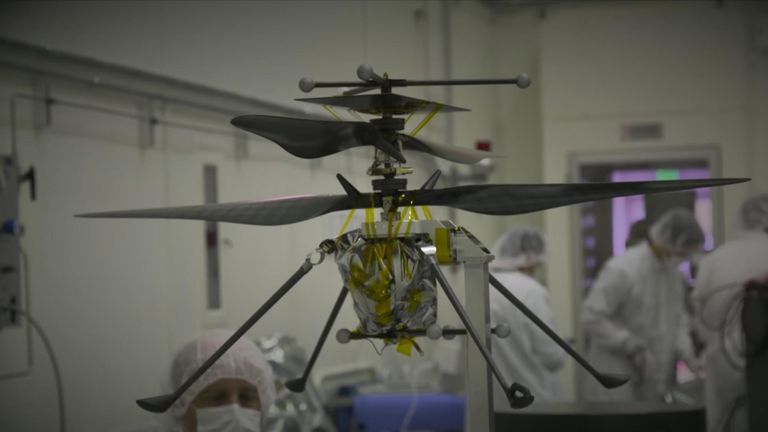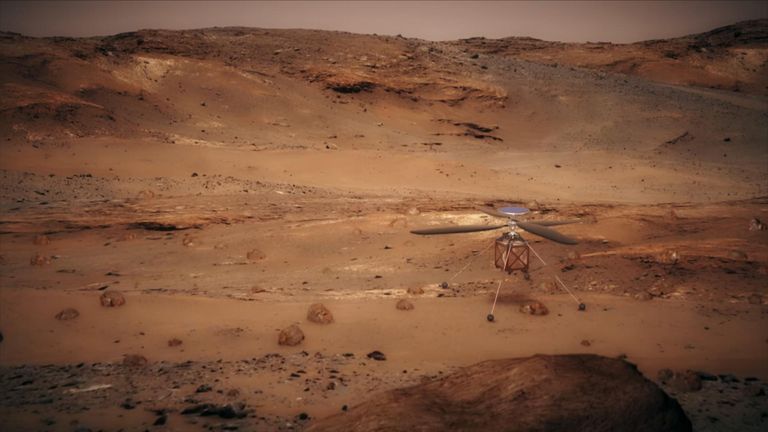NASA performs final tests on Mars helicopter ahead of 2020 launch
The chopper, which is due to explore Mars' Jezero Crater, underwent a series of drills simulating the mission in California.
Friday 7 June 2019 20:16, UK
NASA is performing final tests on a helicopter which it plans to send to Mars to explore the Red Planet.
The chopper, which is due to be launched in 2020 and will fly about Mars' Jezero Crater, underwent a series of drills simulating the mission in California.
They included a high-vibration environment to mimic how it will hold up under the launch and landing conditions, and extreme temperature swings such as those experienced on Mars.
The autonomous test helicopter weighs around 4lbs (1.8kg) and will have an on-board camera and will be powered by a solar panel, but will not contain any scientific instruments.
NASA aims to develop the drone as a prototype to see if it could be worth attaching scientific sensors to similar devices in future.
The space agency is also opening the International Space Station to private astronauts and hoping to land the first woman and next man on the moon by 2024.
But US President Donald Trump tweeted on Friday that NASA "should NOT be talking about going to the moon", adding that "we did that 50 years ago".
He added: "They should be focused on the much bigger things we are doing, including Mars (of which the moon is a part), defence and science!"
Although the Mars helicopter mission is not set to land on the Red Planet until the early afternoon of 18 February 2021, there will not be much time for deliberation when it is heading towards the martian surface.
The rover, which has a mass of 1,050kg (2,313lbs), could easily simply add to the craters on the planet's surface.
In the hope of avoiding this, the rover has been put through a gruelling series of simulations testing the configurations of processors, sensors and transmitters.
"The laws of physics may say it's near impossible to fly on Mars, but actually flying a heavier-than-air vehicle on the Red Planet is much harder than that," the space agency quipped.





